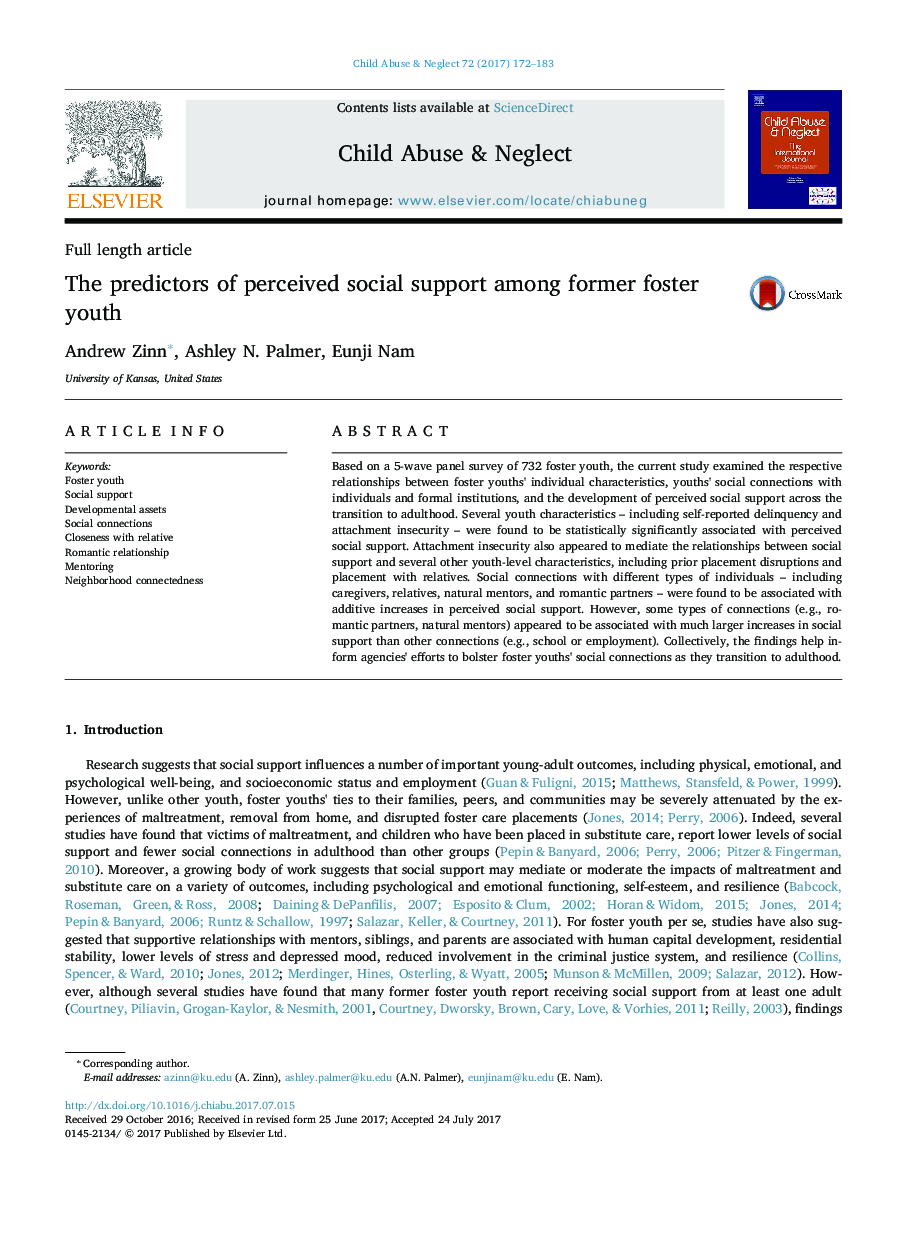| Article ID | Journal | Published Year | Pages | File Type |
|---|---|---|---|---|
| 4935909 | Child Abuse & Neglect | 2017 | 12 Pages |
Abstract
Based on a 5-wave panel survey of 732 foster youth, the current study examined the respective relationships between foster youths' individual characteristics, youths' social connections with individuals and formal institutions, and the development of perceived social support across the transition to adulthood. Several youth characteristics - including self-reported delinquency and attachment insecurity - were found to be statistically significantly associated with perceived social support. Attachment insecurity also appeared to mediate the relationships between social support and several other youth-level characteristics, including prior placement disruptions and placement with relatives. Social connections with different types of individuals - including caregivers, relatives, natural mentors, and romantic partners - were found to be associated with additive increases in perceived social support. However, some types of connections (e.g., romantic partners, natural mentors) appeared to be associated with much larger increases in social support than other connections (e.g., school or employment). Collectively, the findings help inform agencies' efforts to bolster foster youths' social connections as they transition to adulthood.
Keywords
Related Topics
Health Sciences
Medicine and Dentistry
Perinatology, Pediatrics and Child Health
Authors
Andrew Zinn, Ashley N. Palmer, Eunji Nam,
